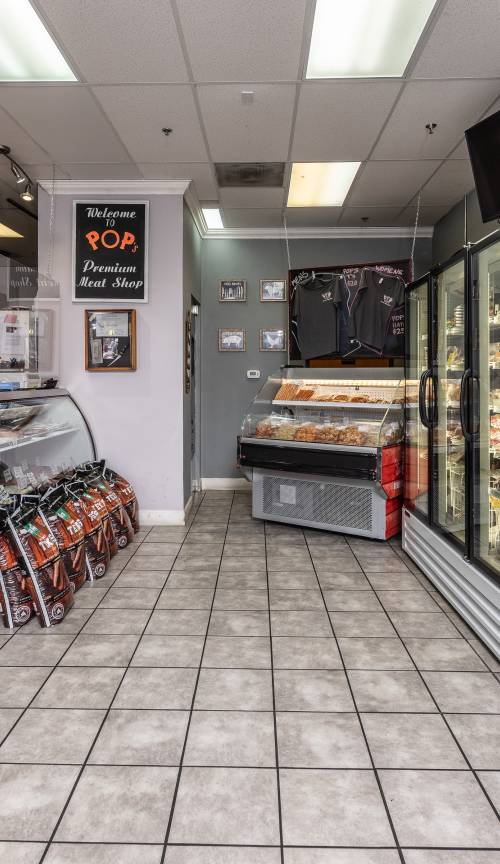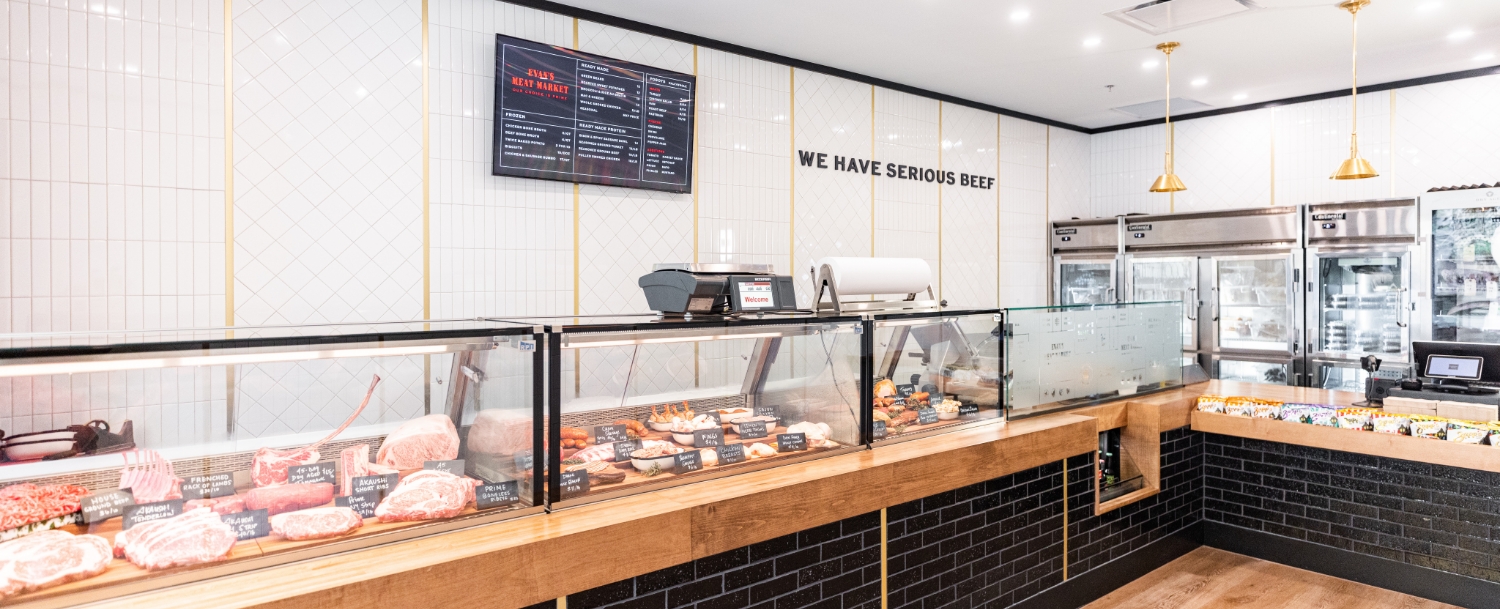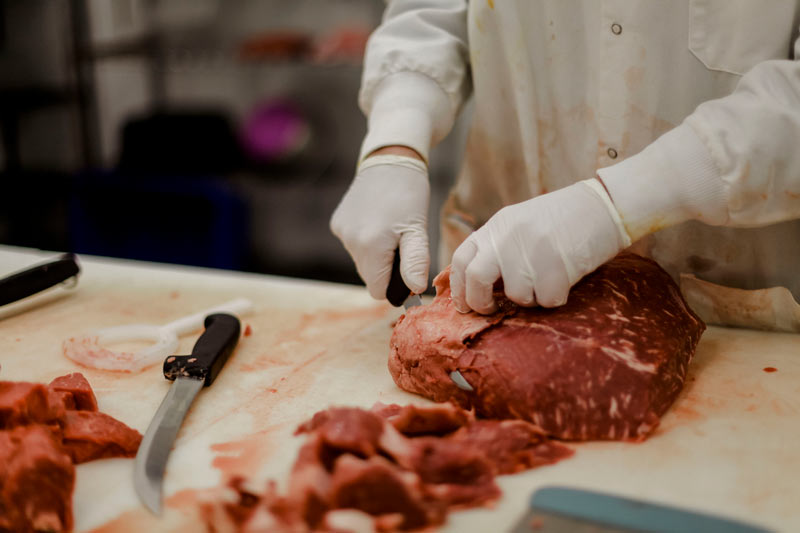Bagley Farms Meat Market: Your Gateway to Exceptional Cuts and Superior Solution
Bagley Farms Meat Market: Your Gateway to Exceptional Cuts and Superior Solution
Blog Article
From Farm to Table: Embracing the Practice of Meat Markets and Butcheries
In an age dominated by convenience and automation, there exists a silent transformation occurring in the cooking globe - a return to the origins of food sourcing via the practice of meat markets and butcheries. These establishments, often ignored in the darkness of supermarkets, are experiencing a resurgence as critical consumers look for quality, traceability, and a link to the origins of their food. But what is driving this change back to the ways of old? The answer depends on the crossway of heritage practices, honest factors to consider, and a desire for a much more genuine gastronomic experience.
The Revival of Meat Markets
The renewal of meat markets throughout different communities shows a change towards a restored appreciation for in your area sourced, high quality meats. Recently, customers have become more mindful of the origins of their food, resulting in an expanding need for openness and sustainability in the meat industry. This trend has actually led the way for the revival of standard meat markets and butcheries, where customers can directly interact with educated butchers and source their meat from nearby farms.
Among the crucial driving elements behind this resurgence is the wish for better and fresher products. By acquiring meat from regional markets, customers can ensure that they are getting fresh cuts that have not traveled lengthy distances or been sitting in storage for prolonged durations. In addition, supporting neighborhood meat markets helps boost the regional economic climate and promotes neighborhood links.
Moreover, the revival of meat markets straightens with the broader activity in the direction of sustaining small farmers and lasting farming methods. By choosing to buy from these establishments, consumers are not just improving quality meat but additionally adding to an extra honest and ecologically pleasant food system.
Workmanship in Butcheries
With the resurgence of meat markets emphasizing high quality and sustainability, the emphasis moves in the direction of identifying the complex workmanship showed in modern butcheries. Craftsmanship in butcheries exceeds just reducing meat; it personifies a deep-rooted tradition of experience and accuracy in dealing with various cuts of meat - Bagley Farms Meat Market. Butchers, typically trained for years, have a wide range of understanding on the makeup of pets, knife skills, and the art of damaging down carcasses successfully
In modern-day butcheries, workmanship is obvious in the means butchers meticulously resource their meat, making certain high requirements of top quality and honest techniques. They take satisfaction in recognizing the provenance of the meat they sell, working closely with neighborhood farmers and distributors to supply clients full transparency and traceability.

Locally Sourced Meat Quality
Amid the growing interest in lasting practices, a focus on in your area sourced meat top quality has become progressively noticeable in the meat market industry. Consumers are progressively seeking openness in the sourcing and production of their meat, leading to a rise sought after for locally raised and processed meats.
Locally sourced meat offers many benefits, consisting of fresher items, assistance for local farmers, and read this article reduced environmental impact as a result of reduced transportation ranges. By buying meat from close-by ranches and butcheries, consumers can have much more confidence in the quality and safety of the items they are getting.
Furthermore, in your area sourced meat frequently comes from pets that have actually been elevated in much more humane conditions, with a focus on animal welfare and lasting farming methods. This moral strategy to meat manufacturing resonates with numerous consumers who are worried concerning the beginnings of their food and its effect on the environment.
Farm-to-Table Purchasing Experience
In the realm of locally sourced meat quality, the farm-to-table shopping experience uses customers a direct link to the you could check here beginnings of their food. This distinct purchasing experience enables customers to map the trip of their meat, from the ranch where the animals were elevated check these guys out to the table where it will certainly be appreciated. By taking part in farm-to-table shopping, people can obtain a much deeper understanding of the farming techniques, animal welfare requirements, and sustainability efforts involved in generating their meat.

Tradition Satisfies Modern Culture


The convergence of traditional meat markets and butcheries with modern society presents a special opportunity for the conservation of artisanal practices in a modern context. While modern-day advancements have actually changed various markets, the essence of conventional meat markets and butcheries stays deeply rooted in history and craftsmanship. This blend of custom and modernity enables the extension of classic techniques while adapting to the needs and choices these days's consumers.
In today's hectic globe, where benefit frequently exceeds top quality, there is a growing appreciation for the heritage and authenticity that conventional meat markets and butcheries provide. Customers are significantly seeking transparency in the sourcing and production of their food, leading them back to the personalized service and expertise found in these facilities. Additionally, the focus on sustainability and honest techniques lines up with the worths supported by many conventional meat markets and butcheries, fostering a sense of area and duty in the direction of the atmosphere.
As culture continues to develop, the coalescence of practice and modernity in meat markets and butcheries not just ensures the preservation of artisanal practices but also enriches the cooking landscape with a blend of heritage and technology.
Final Thought
To conclude, the tradition of meat markets and butcheries is experiencing a resurgence in modern-day culture. These facilities use in your area sourced meat of top quality, supplying a farm-to-table purchasing experience for consumers. The craftsmanship and expertise found in butcheries add to the authenticity and value of the products provided. By accepting this tradition, individuals are able to connect with their food in a purposeful means, linking the gap between the past and today - Bagley Farms Meat Market.
In an era dominated by convenience and mass production, there exists a quiet revolution taking location in the cooking world - a return to the origins of food sourcing through the tradition of meat markets and butcheries.The renewal of meat markets throughout numerous areas shows a shift in the direction of a restored recognition for in your area sourced, top quality meats.With the rebirth of meat markets stressing quality and sustainability, the focus moves towards recognizing the complex workmanship presented in modern butcheries. Workmanship in butcheries goes beyond simply reducing meat; it embodies a deep-rooted practice of competence and precision in managing different cuts of meat.In today's busy world, where benefit commonly surpasses quality, there is an expanding recognition for the heritage and authenticity that traditional meat markets and butcheries use.
Report this page